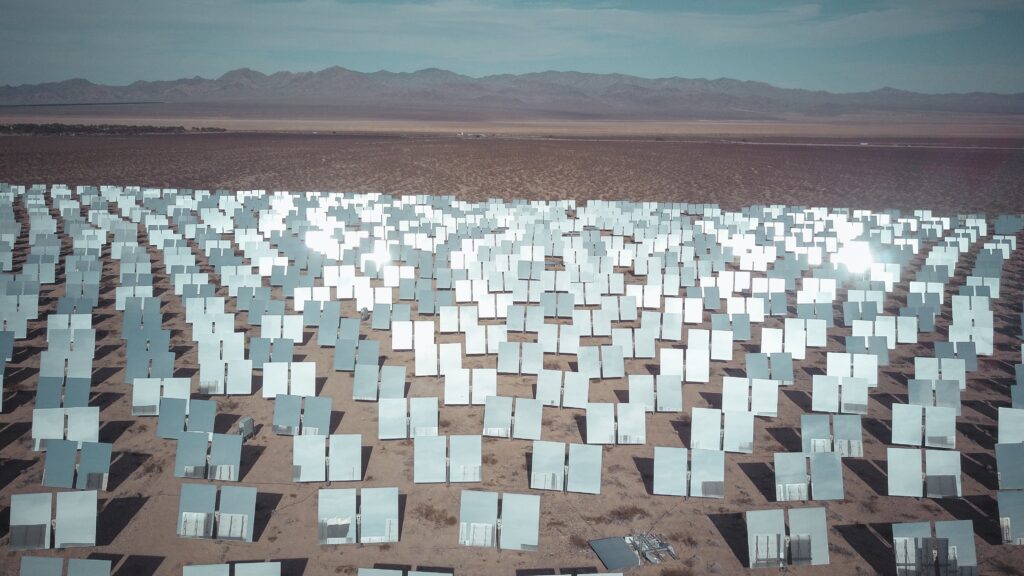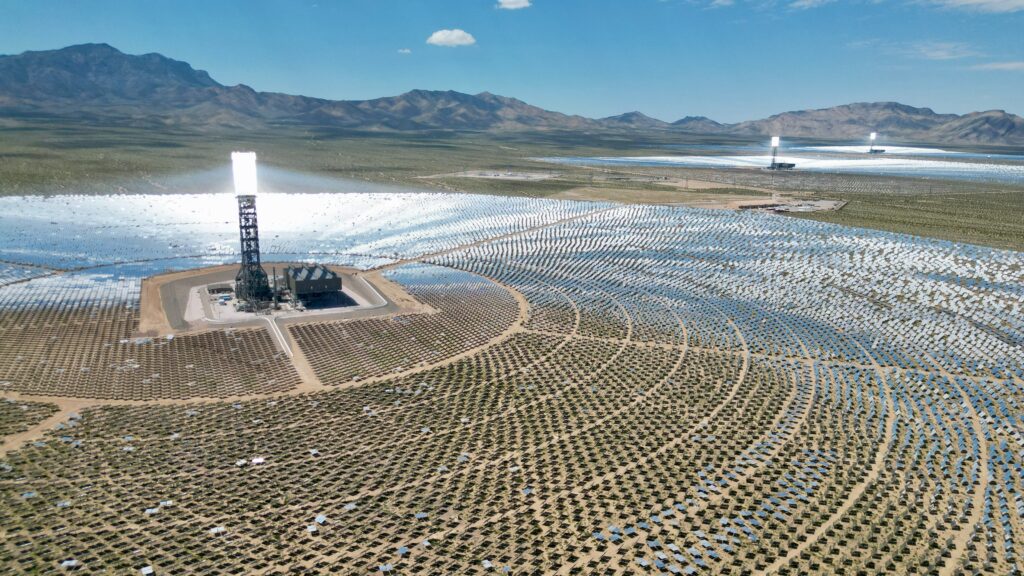
Solar energy has the potential to play a significant role in addressing the energy challenges faced by Sub-Saharan Africa. In addition, Africa is an area with a variety of electricity-related issues, high energy consumption, and a significant contribution to global greenhouse gas emissions. It is also one of the regions most severely affected by climate change, with the expectation of future repercussions getting worse. As a result, not only does Africa have a pressing need to implement effective renewable energy technology to address its foreseeable future worries, but also because of its abundance of natural and renewable resources, Africa is already regarded as a continent with tremendous solar energy potential. Despite the potential benefits of solar energy, there are still challenges to be addressed in Sub-Saharan Africa, including financing, policy and regulatory frameworks, and infrastructure development. However, with the right support and investment, solar energy can play a key role in meeting the region’s energy needs and driving sustainable development (Abdelrazik et al, 2022).
There are a variety of solar energy technologies being used in Sub-Saharan Africa to address the region’s energy challenges. Here are some examples:
1. Solar Home Systems: These are standalone solar power systems that provide electricity to individual households. They typically include solar panels, batteries for energy storage, and a small inverter to convert the DC power from the panels to AC power for use in the home. Solar home systems can provide reliable, clean electricity to rural households that are off-grid or have unreliable grid connections. Here are some key points about solar home systems in Sub-Saharan Africa:
- Improving Energy Access: Solar home systems can provide reliable, clean electricity to households that are off-grid or have unreliable grid connections. This can improve energy access for millions of people in Sub-Saharan Africa who currently lack access to electricity. Solar Home Systems can help reduce gree
- Affordability: Solar home systems are becoming increasingly affordable in Sub-Saharan Africa as the cost of solar technology continues to decrease. Some companies are offering pay-as-you-go financing options that allow households to pay for the system in instalments.
- Improved Quality of Life and Environmental Benefits: Access to electricity can have a significant impact on household quality of life. With solar home systems, households can have access to lighting, which can improve safety and productivity, and can power appliances such as radios and televisions, which can provide entertainment and access to information. Solar home systems can also help reduce greenhouse gas emissions and improve air quality in Sub-Saharan Africa.
2. Mini-Grids: Mini-grids are small-scale, off-grid solar power systems that can be used to provide electricity to communities or small businesses. They typically include solar panels, batteries for energy storage, and power distribution systems. Mini-grids can be used to power schools, health clinics, and other community facilities, as well as small businesses such as shops and restaurants. Here is a brief overview of mini-grids in Sub-Saharan Africa:
- Cost-Effective: Mini-grids can be more cost-effective than extending the grid in areas where the cost of grid extension is high. They can also be more cost-effective than diesel generators, which are commonly used in off-grid areas.
- Types of Mini-Grids: There are two main types of mini-grids: AC mini-grids, which use an inverter to convert DC power from the solar panels to AC power for use in the home or business, and DC mini-grids, which distribute DC power directly to appliances in the home or business. Both types of mini-grids have their advantages and disadvantages, depending on the specific use case.
- Applications: Mini-grids can be used to power a wide range of applications, including lighting, refrigeration, water pumps, and other appliances. They can also be used to power small businesses, such as shops and restaurants, which can help drive economic growth in rural areas.
- Challenges: Despite the potential benefits of mini-grids, there are still challenges to be addressed, such as access to financing, lack of awareness and education, and regulatory barriers. However, governments, development organizations, and private sector companies are working to address these challenges and promote the deployment of mini-grids in Sub-Saharan Africa.
Mini-grids have the potential to play a key role in improving energy access and driving sustainable development in Sub-Saharan Africa. As the cost of solar technology continues to decrease and the demand for clean energy grows, mini-grids are likely to become an increasingly important solution for off-grid communities and businesses.
3. Grid-Connected Solar Farms: Grid-connected solar farms are large-scale solar power plants that feed electricity directly into the grid. They are typically owned and operated by utilities or independent power producers and can provide a significant source of clean electricity to the grid. Grid-connected solar farms can be particularly useful in areas with high levels of solar irradiation and where land is available for large-scale development.

Here are some key points about grid-connected solar farms:
- Electricity Generation: Grid-connected solar farms can generate large amounts of electricity, which can be fed into the electricity grid and used to power homes and businesses. In Sub-Saharan Africa, grid-connected solar farms can help meet the growing demand for electricity and provide a clean, renewable energy source.
- Cost-Effective: Grid-connected solar farms can be cost-effective, especially in areas with high solar irradiation and high electricity prices. The cost of solar technology has been declining in recent years, making grid-connected solar farms more competitive with traditional fossil fuel-based electricity generation.
- Challenges: There are still challenges to be addressed when it comes to grid-connected solar farms in Sub-Saharan Africa, such as access to financing, grid integration, and regulatory barriers. However, governments and private sector companies are working to address these challenges and promote the deployment of grid-connected solar farms.
Overall, grid-connected solar farms have the potential to play a key role in meeting the growing demand for electricity in Sub-Saharan Africa and driving sustainable development. With the right support and investment, grid-connected solar farms can help accelerate the transition to clean, renewable energy in the region.
4. Solar Water Pumps: Solar water pumps use solar energy to power water pumps that can be used for irrigation, livestock watering, and other agricultural applications. They are particularly useful in areas where access to water is limited and traditional diesel-powered pumps are expensive to operate. Solar water pumps have the potential to play a key role in improving access to water and promoting sustainable agriculture in Sub-Saharan Africa Here are some key points about solar water pumps:
- Energy Source: Solar water pumps are powered by photovoltaic (PV) panels, which convert sunlight into electricity. The PV panels are connected to a motor that drives the pump.
- Advantages: Solar water pumps have several advantages over diesel-powered pumps, including lower operating costs, less maintenance, and reduced emissions. They also provide a reliable source of water for irrigation, even in remote areas without access to the grid.
- Applications: Solar water pumps can be used for a wide range of applications, including irrigation, livestock watering, drinking water supply, and water storage. They can be installed on small-scale farms, community water systems, and other applications where reliable access to water is needed.
5. Solar Thermal Systems: Solar thermal systems use the heat from the sun to generate electricity or provide hot water for domestic or industrial use. They are particularly useful in areas with high solar radiation and can be used for a wide range of applications, including cooking, water heating, and space heating. Here are some key points about solar thermal systems:
- Technology: Solar thermal systems typically use flat-plate or evacuated-tube collectors to absorb sunlight and convert it into heat. The heat is then transferred to a fluid, such as water or glycol, which is circulated through a network of pipes or a storage tank.
- Applications: Solar thermal systems can be used for a wide range of applications, including space heating, water heating, and industrial processes. In Sub-Saharan Africa, solar thermal systems can help reduce reliance on fossil fuels for heating, which can help reduce greenhouse gas emissions and improve air quality.
- Advantages: Solar thermal systems have several advantages over traditional heating systems, including lower operating costs, reduced greenhouse gas emissions, and increased energy independence. They can also be integrated with existing heating systems and can provide reliable heat even during power outages.
Overall, solar energy technologies are becoming increasingly popular in Sub-Saharan Africa as the region seeks to expand access to clean, reliable electricity. While there are still challenges to be addressed, such as financing and infrastructure development, solar energy has the potential to transform energy access and drive sustainable development in the region.
Source: European Investment Bank

